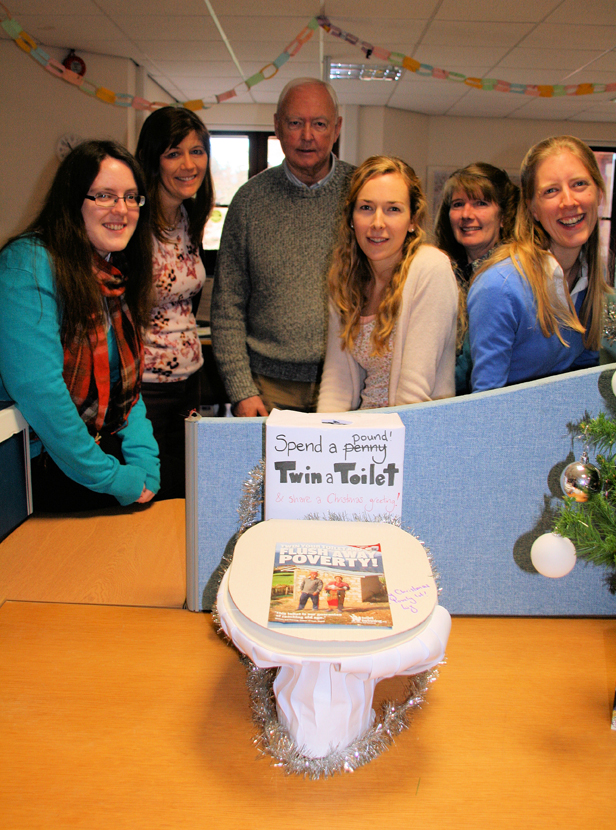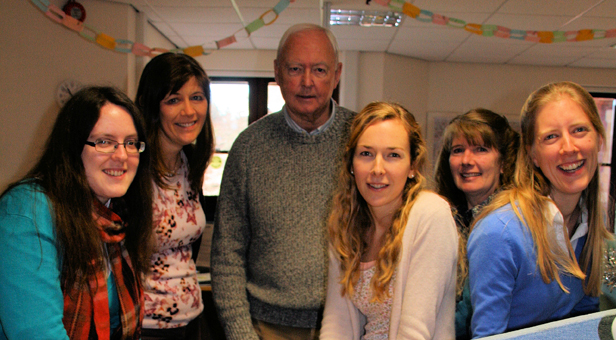
Staff from the development management department at the council with a unique collection box
Staff at East Dorset District Council’s offices at Furzehill, Wimborne, have opted for a different way of celebrating Christmas – by raising money to ‘twin toilets’ instead of sending each other Christmas cards.
Senior Planning Officer, Elizabeth Adams, constructed her own version of a toilet and has invited workmates to put money in her novel collecting bowl for the charity Toilet Twinning. Colleagues are invited to ‘spend a pound instead of a penny’.
The hope is to raise £60 to provide a family in a developing nation with a proper latrine, clean water and the information they need to stay clean and healthy. An estimated 2.5 billion people around the world do not have safe, clean toilet facilities.
Toilet Twinning, whose office is in Christchurch, is a partnership between development charities Tearfund and Cord and raises funds to provide life-saving latrines in some of the world’s poorest communities. Proper sanitation is often the first step out of poverty for families: instead of being laid low by sickness, parents are able to work and grow crops; children are able to go to school and get an education.
Elizabeth said: “We often look for an alternative way to celebrate Christmas instead of sending each other Christmas cards. With the Ebola outbreak and the need for people to have hygienic facilities, this seemed like a good cause to support and we’re encouraging everyone to spend a pound.”
Toilet Twinning CEO Lorraine Kingsley said the charity had seen increased demand for toilet twins in West African nations such as Sierra Leone since the latest Ebola outbreak.
“It’s easy to feel helpless in the face of such a crisis, but providing clean water and proper sanitation is one very practical way to help prevent the spread of the virus,” said Lorraine. “We’re so impressed by people like Elizabeth and her co-workers’ generosity and creativity – and extremely grateful too. Toilets really do save lives!”
The Centre for Disease Control and Prevention says hand washing with soap is one of key ways to prevent the spread of Ebola. The virus is spread by contact with the fluids of someone who is infected, including their faeces, saliva, blood and vomit.







